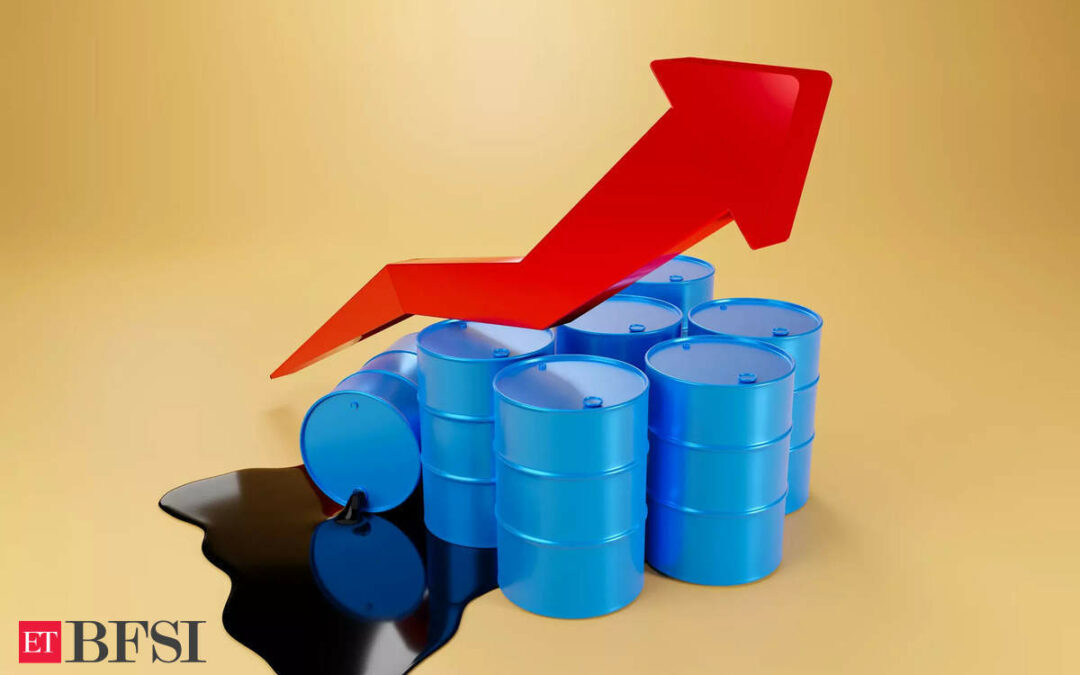Global markets have been on pins and needles given the vexing geopolitical situation in Europe and the Middle East. Oil prices have fluctuated in recent weeks but worries are building over an eventual spike. Analysts say that this may force the Reserve Bank of India to react with rate action.
For Morgan Stanley, India, a net oil importer, has been a ‘constructive’ option and has ‘one of the best structural stories over the medium-term globally.’ Yet, there are challenges to this outlook.
“The challenge will arise if higher US rates are accompanied by oil prices moving higher to in a sustained manner above $110/bbl, as we see this level of oil prices as potentially stretching India’s macro stability and increasing currency depreciation pressures,” Chetan Ahya, Chief Asia Economist at Morgan Stanley, wrote in a note.
Crude prices have managed to remain intact in the one month since the war between Israel and Hamas broke out but edged higher Monday after Saudi Arabia and Russia said they would stick with oil supply curbs of more than 1 million barrels a day through year-end. While the US Federal Reserve held interest rates steady in its recent meeting, it has indicated that there will be no hesitation to raise rates again if progress on inflation stalls.
As of November 2, the average price of India’s crude oil basket stood at $87.09/bbl, as opposed to the average of $90.08 for the entire month of October. Brent crude oil was trading at over $85 per barrel on Monday.
If oil prices rise sustainably to $110/bbl, India’s macro stability indicators could be stretched and the RBI could restart its rate hike cycle, the note read.
The central bank has held rates unchanged in the previous four meetings, even as inflation print trends above its median target. RBI’s inflation projections are built on the assumption of a crude oil price of $85/bbl in the latter half of FY24.
Morgan Stanley has warned that if oil prices surpass $110/bbl, it could have a destabilising impact on India’s economy. This would lead to increased domestic fuel prices and secondary inflationary effects. Additionally, it is anticipated that the current account deficit may exceed the comfortable threshold of 2.5% of the gross domestic product.
As the base case, the investment bank expects prices to sustain at $95/bbl, which would be more manageable for the economy, it said. Under this scenario, the RBI will likely delay cutting interest rates, the report said.
The World Bank estimated that while it expects global oil prices to average $90/bbl in the fourth quarter, it said that an escalation in the Middle East conflict could spike prices significantly higher.
“Higher oil prices, if sustained, inevitably mean higher food prices,” said Ayhan Kose, the World Bank’s Deputy Chief Economist. “If a severe oil-price shock materializes, it would push up food price inflation that has already been elevated in many developing countries.”
Meanwhile, efforts by Israel to hit back at the Hamas militants have intensified, with the Biden administration expressing frustration at the rising civilian casualties in Gaza. In an attempt to soothe fraying nerves, US Secretary of State Antony Blinken met Palestinian Authority President Mahmoud Abbas in the West Bank and also made an unscheduled stop in Baghdad.
Israeli attacks have killed about 9,500 people, according to the Hamas-run health ministry.










